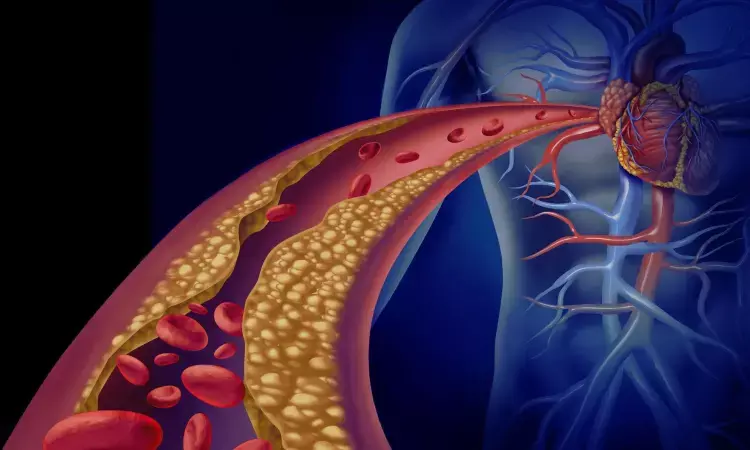- Home
- Medical news & Guidelines
- Anesthesiology
- Cardiology and CTVS
- Critical Care
- Dentistry
- Dermatology
- Diabetes and Endocrinology
- ENT
- Gastroenterology
- Medicine
- Nephrology
- Neurology
- Obstretics-Gynaecology
- Oncology
- Ophthalmology
- Orthopaedics
- Pediatrics-Neonatology
- Psychiatry
- Pulmonology
- Radiology
- Surgery
- Urology
- Laboratory Medicine
- Diet
- Nursing
- Paramedical
- Physiotherapy
- Health news
- Fact Check
- Bone Health Fact Check
- Brain Health Fact Check
- Cancer Related Fact Check
- Child Care Fact Check
- Dental and oral health fact check
- Diabetes and metabolic health fact check
- Diet and Nutrition Fact Check
- Eye and ENT Care Fact Check
- Fitness fact check
- Gut health fact check
- Heart health fact check
- Kidney health fact check
- Medical education fact check
- Men's health fact check
- Respiratory fact check
- Skin and hair care fact check
- Vaccine and Immunization fact check
- Women's health fact check
- AYUSH
- State News
- Andaman and Nicobar Islands
- Andhra Pradesh
- Arunachal Pradesh
- Assam
- Bihar
- Chandigarh
- Chattisgarh
- Dadra and Nagar Haveli
- Daman and Diu
- Delhi
- Goa
- Gujarat
- Haryana
- Himachal Pradesh
- Jammu & Kashmir
- Jharkhand
- Karnataka
- Kerala
- Ladakh
- Lakshadweep
- Madhya Pradesh
- Maharashtra
- Manipur
- Meghalaya
- Mizoram
- Nagaland
- Odisha
- Puducherry
- Punjab
- Rajasthan
- Sikkim
- Tamil Nadu
- Telangana
- Tripura
- Uttar Pradesh
- Uttrakhand
- West Bengal
- Medical Education
- Industry
Precision in Practice: Machine Learning Redefines Familial Hypercholesterolemia Detection in new study

UK: In healthcare diagnostics, the quest for early detection of genetic disorders is increasingly turning towards innovative technologies. One such area of focus is Familial Hypercholesterolemia (FH), a genetic condition characterized by high levels of cholesterol in the blood, which significantly increases the risk of heart disease from a young age if left untreated.
New findings indicate that machine learning could play a role in enhancing the detection of potential cases of familial hypercholesterolemia. A machine learning–derived model provided a higher pretest probability in identifying individuals with a molecular diagnosis of FH than current approaches.
"This provides a cost‐effective, promising scalable tool for implementation into electronic health records to prioritize potential FH cases for genetic confirmation," the researchers wrote in the Journal of the American Heart Association.
Familial hypercholesterolemia, while highly prevalent, is a significantly underdiagnosed monogenic disorder. Recently, medical researchers and technology experts have been exploring the potential of machine learning algorithms in improving the identification and management of FH cases. FH is often underdiagnosed, partly due to its asymptomatic nature until complications arise, such as premature heart disease. Identifying individuals with FH early on can lead to timely interventions, potentially preventing severe cardiovascular events.
Against the above background, Christophe A. T. Stevens, Imperial College London, London, United Kingdom, and colleagues aimed to assess whether machine learning algorithms outperform clinical diagnostic criteria (history, signs, and biomarkers) and the recommended screening criteria in the United Kingdom to identify individuals with FH‐causing variants, presenting a scalable screening criteria for general populations.
The analysis included UK Biobank participants with whole exome sequencing; they were classified as having FH when (likely) pathogenic variants were detected in their LDLR, APOB, or PCSK9 genes. Data were stratified into three data sets for (1) deriving state‐of‐the‐art statistical and machine learning models; (2) feature importance analysis; (3) evaluating models' predictive performance against clinical diagnostic and screening criteria: Simon Broome, Dutch Lipid Clinic Network, Familial Case Ascertainment Tool, and Make Early Diagnosis to Prevent Early Death.
The following were the key findings of the study:
- One thousand and three of 454,710 participants were classified as having FH.
- A Stacking Ensemble model yielded the best predictive performance (precision, 0.61%; sensitivity, 74.93%; accuracy, 72.80%, area under the receiver operating characteristic curve, 79.12%) and outperformed clinical diagnostic criteria and the recommended screening criteria in identifying FH variant carriers within the validation data set (figures for Familial Case Ascertainment Tool, the best baseline model, were 69.55%, 0.44%, 65.43%, and 71.12%, respectively).
- Our model decreased the number needed to screen compared with the Familial Case Ascertainment Tool (164 versus 227).
Investigators noted that incorporating models derived from machine learning into electronic health records could improve the prioritization of genetic confirmation of FH, providing a more effective and efficient approach to identifying FH across diverse clinical settings and adult populations. They suggested that implementing screening criteria based on machine learning could enhance early identification and management, potentially decreasing instances of acute myocardial infarctions, revascularizations, and cardiovascular deaths associated with undetected cases.
Reference:
Stevens CAT, Vallejo-Vaz AJ, Chora JR, et al. Improving the Detection of Potential Cases of Familial Hypercholesterolemia: Could Machine Learning Be Part of the Solution?. J Am Heart Assoc. 2024;13(12):e034434. doi:10.1161/JAHA.123.034434
Dr Kamal Kant Kohli-MBBS, DTCD- a chest specialist with more than 30 years of practice and a flair for writing clinical articles, Dr Kamal Kant Kohli joined Medical Dialogues as a Chief Editor of Medical News. Besides writing articles, as an editor, he proofreads and verifies all the medical content published on Medical Dialogues including those coming from journals, studies,medical conferences,guidelines etc. Email: drkohli@medicaldialogues.in. Contact no. 011-43720751


